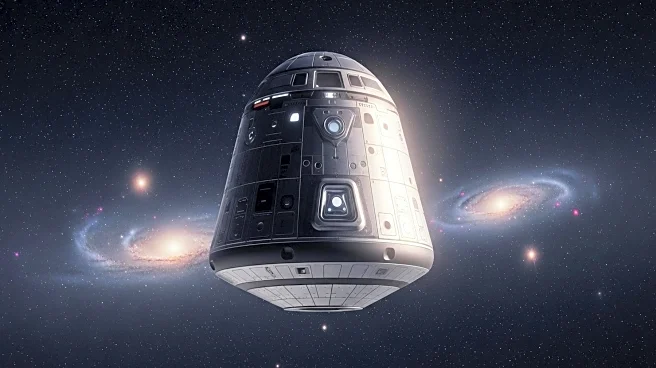What's Happening?
Blue Origin has announced the retirement of its New Shepard capsule, RSS H.G. Wells, following its final mission on September 19. The capsule, which has been in service for nearly eight years, completed a dozen uncrewed missions, including its last flight carrying over 40 research payloads. The NS-35 mission, launched from West Texas, reached a peak altitude of 105 kilometers and marked the seventh suborbital flight for Blue Origin this year. The capsule's retirement comes after a long service life, with Blue Origin planning to use it for verification testing before displaying it publicly.
Why It's Important?
The retirement of RSS H.G. Wells signifies a transition in Blue Origin's suborbital flight operations, potentially impacting research and commercial payload opportunities. The capsule has been instrumental in carrying student experiments and scientific payloads, contributing to educational and technological advancements. Its retirement may lead to increased reliance on newer capsules like RSS First Step and RSS Kármán Line, which are designed for crewed missions. This shift could enhance Blue Origin's capabilities in human spaceflight and expand its role in the commercial space sector.
What's Next?
Blue Origin will continue to operate its other New Shepard capsules for payload flights, maintaining its commitment to suborbital research missions. The company may focus on expanding crewed flight operations, leveraging the newer capsules' capabilities. The retired capsule's display could serve as a historical marker of Blue Origin's progress in reusable space technology, potentially inspiring future innovations. Stakeholders in the space industry, including educational institutions and research organizations, may anticipate new opportunities with Blue Origin's evolving fleet.










